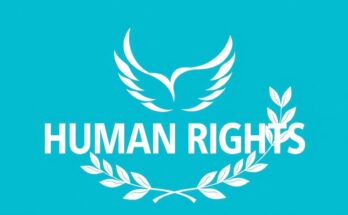In a recent report, the UN Human Rights Office has condemned the previous Bangladeshi government for its severe human rights violations against civilian protesters. The document, released on 12 February, details incidents from 1 July to 15 August, 2024, following a fact-finding mission initiated by Bangladesh’s interim government, underscoring the urgent need for reforms and accountability to prevent further violence.
The student-led protests, ignited by the reinstatement of an unpopular quota system for civil service positions, rapidly evolved into a nation-wide outcry against former Prime Minister Sheikh Hasina’s administration. In response to escalating demands for governmental reform and her resignation, Hasina fled to India on August 5, 2024, marking her regime’s collapse amidst this turmoil.
The OHCHR’s investigation detailed systematic abuses sanctioned by senior officials and security forces, including extrajudicial killings and torture. UN Human Rights Chief Volker Türk asserted that the brutal response was a premeditated strategy aimed at retaining power amid widespread dissent, reflecting a troubling trend in suppressing civic freedoms.
The report starkly illustrates the use of excessive force against largely unarmed protesters, which included armed assaults from Awami League affiliates and police forces. Both government personnel and paramilitary groups were implicated in using metal pellets and rubber bullets, with medical examinations revealing alarming statistics of fatalities tied to gun violence during the protests.
Women within the protest movement were particularly vulnerable to abuse, experiencing threats of sexual violence from both the police and Awami League supporters. This included incidents where female protesters were physically assaulted, revealing a troubling culture of intimidation aimed at stifling dissent and silencing women.
Even after Hasina’s departure, violence lingered in the air; revenge attacks targeting police and perceived Awami League affiliates were rampant. Reports of assaults on indigenous and minority groups further reveal the unrest and lingering animosity that followed the protests, despite some arrests occurring amidst ongoing impunity for many offenders.
The OHCHR deemed the crackdown illustrative of grave violations against international law, calling for far-reaching reforms and changes within Bangladesh’s political landscape. In a hopeful turn, the interim government expressed willingness to enact these recommendations, pledging commitment to justice and the promotion of rights for all citizens.
Volker Türk’s office is prepared to assist Bangladesh in its quest for accountability, advocating for a thorough process to acknowledge past atrocities with the promise that such wrongs are never repeated. Interim Advisor Dr. Muhammad Yunus has encouraged law enforcement sectors to align with justice; maintaining accountability to those whose rights were egregiously violated is paramount as the nation strives forward.
The UN Human Rights Office condemned Bangladesh’s former government for serious human rights violations against protesters. A report released on 12 February details abuses during protests from July to August lasting under former Prime Minister Sheik Hasina’s regime. Calls for accountability and reforms are being made as the interim government expresses willingness to address these issues.
The UN report shines a harsh spotlight on the rampant human rights violations perpetrated by Bangladesh’s former government during the protests, calling for necessary reforms and accountability. The interim government’s acknowledgment of these issues marks a significant step towards justice, yet the risks of repeating past mistakes loom large. A balance must be struck to ensure that the quest for justice respects human rights, steering away from retaliation and further violence while fostering a culture of accountability that can heal the nation’s wounds.
Original Source: www.globalissues.org



